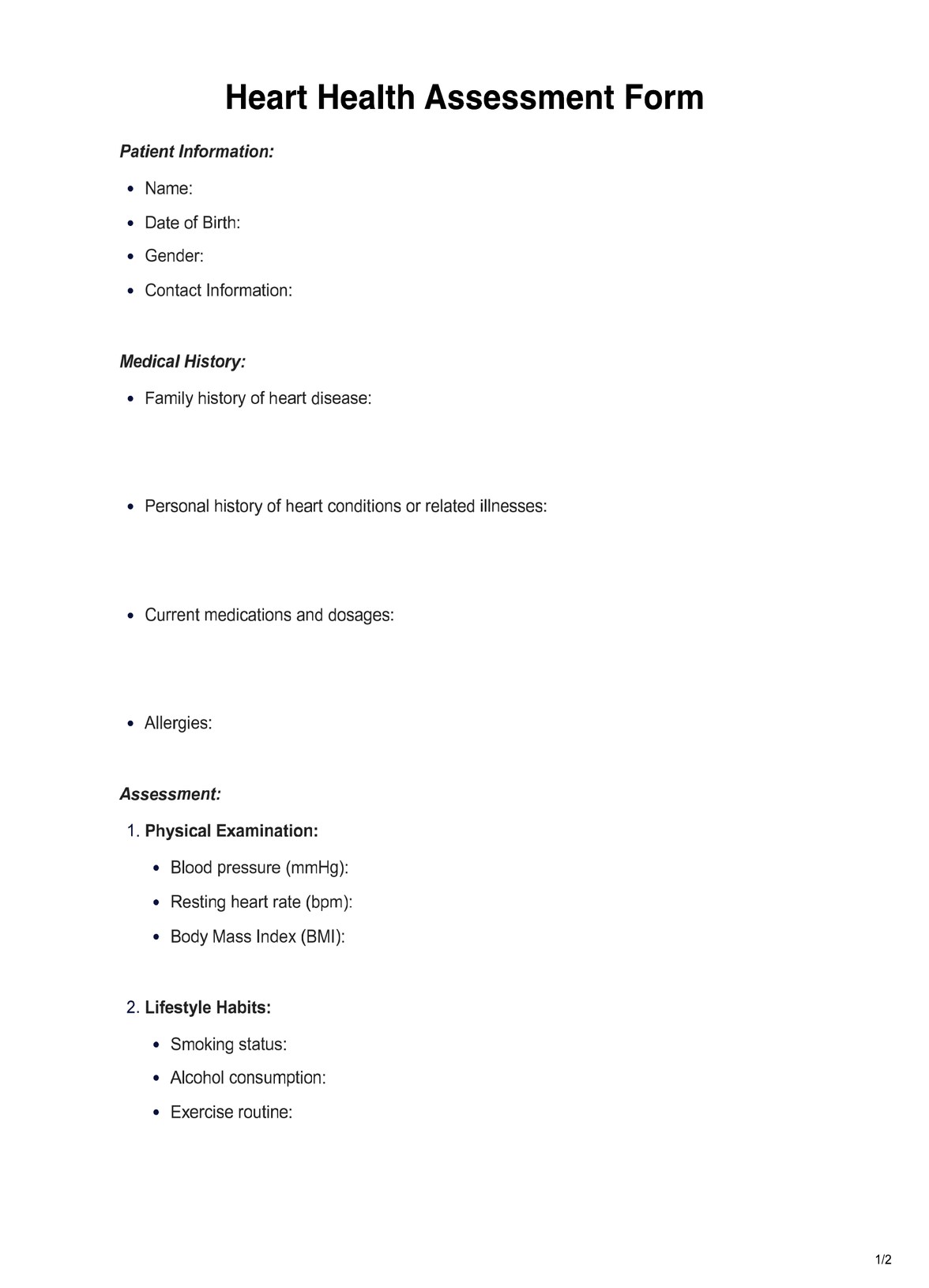Your healthcare provider might recommend a Heart Test if you have chest pain, shortness of breath, or palpitations. It's also recommended for individuals with a family history of heart disease or those needing routine heart health evaluations.

Heart Blood Test
Get comprehensive cardiac evaluation with our Heart Test, assessing your heart's health efficiently and accurately for better healthcare insights.
Heart Blood Test Template
Commonly asked questions
Most Heart Tests are non-invasive and painless. They typically involve electrode placement, imaging procedures, or stress-inducing exercises to assess heart function. Discuss with your healthcare provider for specifics on the tests you'll undergo.
The duration varies based on the type of test. Some tests, like an ECG, are relatively quick, typically taking 5-10 minutes, while stress tests or imaging studies might take longer, up to an hour or more.
EHR and practice management software
Get started for free
*No credit card required
Free
$0/usd
Unlimited clients
Telehealth
1GB of storage
Client portal text
Automated billing and online payments











